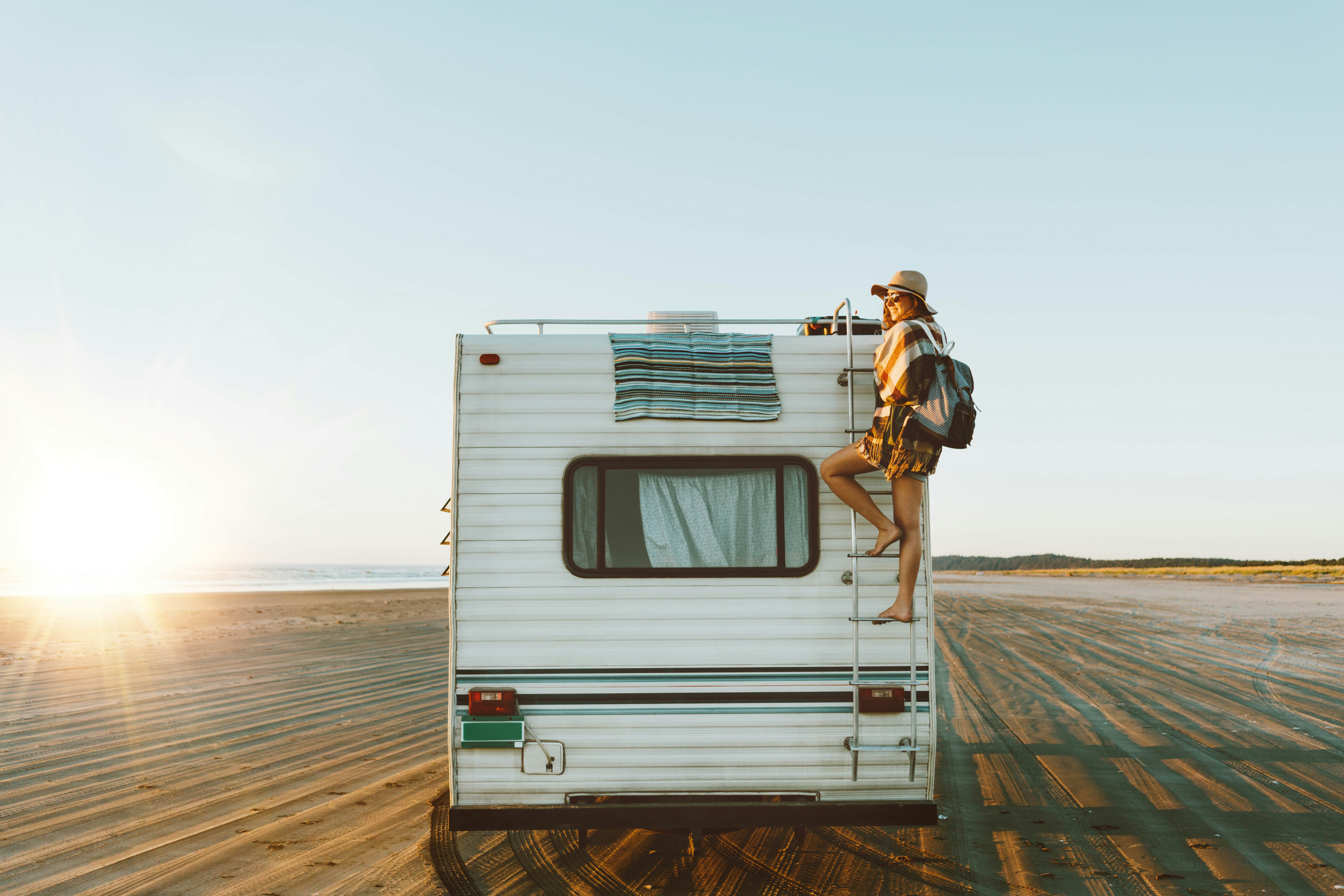One word that usually comes to the mind of new RVers before acquiring their rig is freedom. Many of them find the prospect of living on their terms, designing a flexible work schedule, and connecting with nature exciting.
It’s glaring that they can’t wait to leave their regular lifestyle behind and embrace full-time RVing. However, this lifestyle has its pros and cons.
Without much ado, this guide will help you prepare for camping, especially if this is your first time.

Have a budget
Different types of recreational vehicles exist, but many RV beginners often assume that they are the same. There are two main types, namely towable and motorized RVs. The latter comprises Class A, B, and C motorhomes.
Class A motorhomes are cheaper because they are smaller, while Class C motorhomes are the most expensive due to their large size. Examples of towable RVs include pop-up campers and travel trailers.
Although you won’t be splurging money on booking hotels and flights, you will still need to cover other expenses. The common expenses you should factor in are amenities, fuel, repair, maintenance, and insurance.
More so, focus on getting loans for recreational vehicles instead of paying cash because RVs can be quite expensive.
Take safety measures
Endeavor to check your RV fluids and tires regularly. Make adequate preparation for adverse weather conditions to make your trip a memorable one. Another thing is to steer clear of high crime areas once discover the crime rate in such areas.
Please keep all your items secured in a safe place so that they won’t shift to other parts of your RV as you move around. Secure your RV wheels each time you park. Getting security gadgets for your rig is another way to protect it.
If you’re traveling with kids or pets, be deliberate about mastering the art of curbing distractions.
Observe camp rules and etiquette
The best way to avoid ending up at a campsite you will later regret is to do your due diligence. Explore your campsite once you arrive and don’t hesitate to ask for assistance from the workers or other campers.
Design a plan to make parking hassle-free. When choosing a campsite, opt for the one that can meet your needs. Each campground has its rules, so get more information to ensure that the campsite is conducive for everyone.
Make a reservation ahead of time.
As you make plans for your first trip and the subsequent ones, don’t just assume that you’ll find the perfect campsite immediately you arrive at the park.
Truth be told, the percentage of people adopting the RV lifestyle is increasing at an unprecedented rate. Most campgrounds may be filled to the brim with campers by the time you get there.
If you have a particular one in mind, put a call through to make a reservation early on. Please take note of the campgrounds you’ll come across as you travel and research them.
Boondocking is gaining popularity lately, and it’s worth considering.
Connect with others
It’s not always helpful for new RVers to stay in isolation. Most times, other RVers are willing to offer assistance and share some tips with their neighbors. Apart from that, they can help you keep an eye on your rig whenever you run errands.











